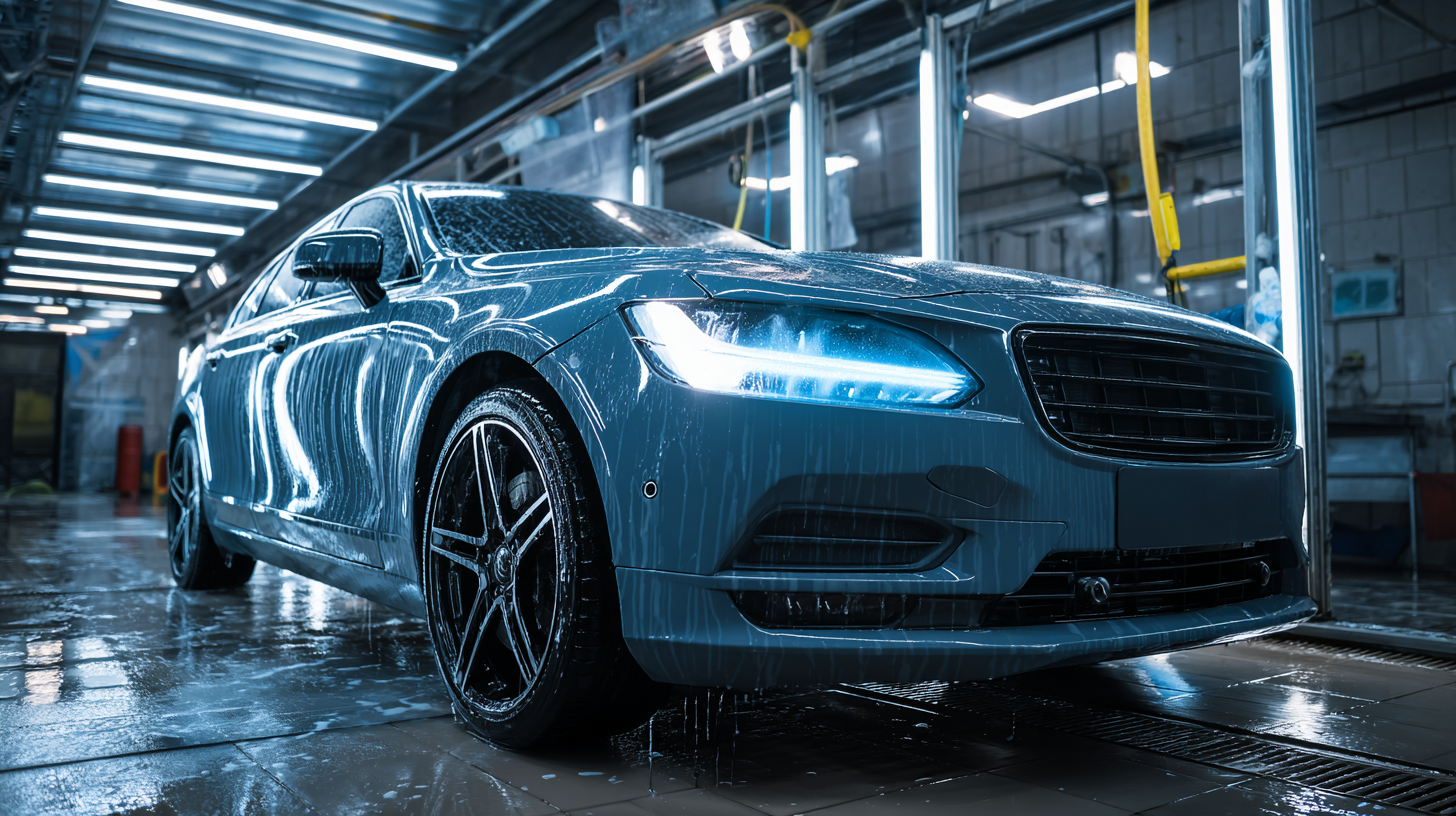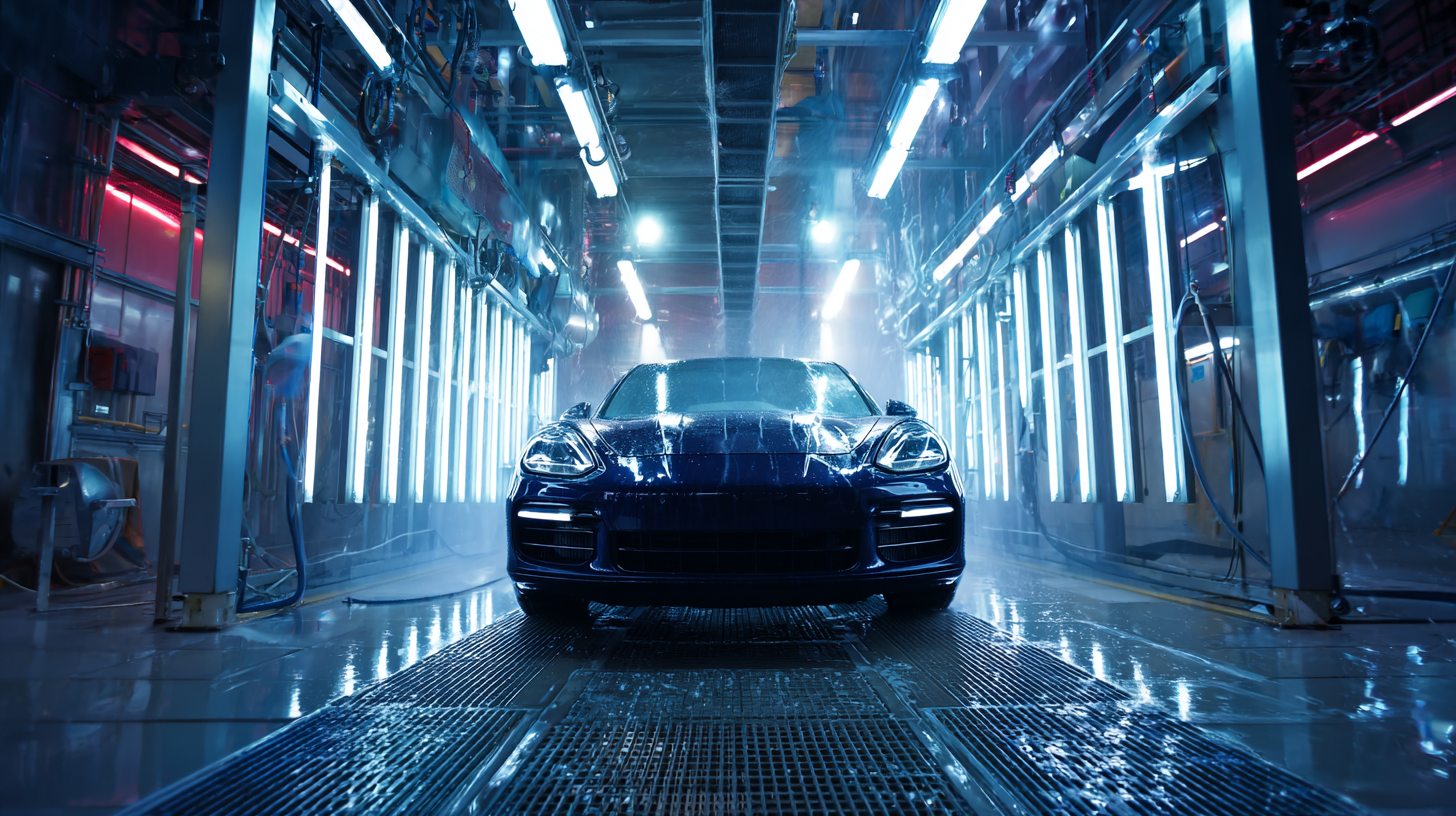Future Innovations in Car Wash Technology The Definitive Guide for Global Buyers
In an era where technology continues to evolve at a breathtaking pace, the car wash industry is no exception. As consumers increasingly demand quick, efficient, and eco-friendly solutions, the development of advanced car wash machines has become crucial. This definitive guide aims to explore the future innovations in car wash technology, particularly focusing on "Car Wash Machine Commercial" systems that cater to businesses worldwide. From automated washing to eco-conscious cleaning agents, we will delve into the industry production standards that shape these innovations and provide practical insights on how to select the right equipment for your needs.

Whether you're an entrepreneur looking to invest in a state-of-the-art car wash system or a seasoned operator wanting to upgrade your facilities, this guide will serve as your go-to resource for navigating the cutting-edge advancements in car wash technology.
Advantages of Automated Car Wash Systems for Efficiency and Cost-Effectiveness
The evolution of car wash technology has marked a significant shift towards automated systems that promise improved efficiency and cost-effectiveness. According to a report by IBISWorld, the car wash industry has seen a 3.9% annual growth rate over the past five years, driven largely by the rise of automated car wash solutions. These systems leverage advanced technologies, such as conveyor belts and high-pressure water sprays, which allow for faster service, enabling businesses to wash around 20-30 cars per hour compared to just 10-15 for traditional hand-washing methods.

Automated car wash systems not only enhance operational efficiency but also reduce labor costs significantly. A survey conducted by the International Carwash Association revealed that automatic car washes can lower labor expenses by up to 60%. Additionally, automated systems are designed with water conservation technologies that utilize up to 90% less water per wash than manual washes, aligning with sustainability practices that are increasingly important to consumers. With these benefits, it’s evident that automated car wash technology is not just a trend but a sound investment for businesses aiming to maximize their operational potential while meeting modern environmental standards.
Eco-Friendly Innovations: How Sustainable Practices Enhance Car Wash Benefits
The car wash industry is undergoing a significant transformation, driven by eco-friendly innovations that not only cater to consumer demand for sustainability but also enhance operational efficiency. According to a report by IBISWorld, the global car wash industry is projected to reach $29 billion by 2025, with eco-conscious practices becoming a vital segment. Sustainable car wash technologies, such as water recycling systems and biodegradable detergents, are increasingly popular, as they reduce water usage by up to 90% compared to traditional methods. This aligns with the broader shift toward sustainability in consumer choices.
Moreover, integrating renewable energy sources, like solar power, into car wash facilities can significantly lower operational costs. A study from the International Energy Agency highlights that renewable energy use can cut energy expenditures by up to 50% for commercial establishments. Additionally, adopting eco-friendly technologies not only attracts environmentally conscious consumers but also fosters loyalty, with a Nielsen survey indicating that 66% of global consumers are willing to pay more for sustainable brands. As the industry evolves, these sustainable practices will not only support environmental goals but also contribute to the profitability and longevity of car wash businesses worldwide.
Future Innovations in Car Wash Technology
Enhanced User Experience: Trends in Customer-Centric Car Wash Technologies
As the car wash industry evolves, customer-centric technologies are set to redefine user experiences significantly. According to a recent report by IBISWorld, the car wash sector has seen a 3.5% annual growth rate, driven largely by innovations that focus on enhancing customer satisfaction. In particular, features such as touchless washing systems and mobile app integration are becoming mainstream. Touchless systems not only provide a gentler clean but also cater to the growing awareness of vehicle care among consumers, reducing the risk of scratches while maintaining high-quality wash standards.
Moreover, the integration of mobile technologies is transforming how customers interact with car wash services. Data from Statista indicates that by 2025, 70% of customers will prefer using mobile apps for services like scheduling and payment in the car wash sector. This shift towards digital convenience allows businesses to gather valuable customer feedback in real-time and tailor services to meet evolving preferences.
Implementing these customer-centric innovations not only enhances user experiences but also builds loyalty, thus paving the way for greater profitability in a competitive market.
The Role of Smart Technology in Revolutionizing Car Wash Operations
As the automotive industry continues to embrace the digital era, the integration of smart technology in car wash operations is rapidly transforming the way these services are delivered. The implementation of IoT devices allows for real-time monitoring and feedback, ensuring each vehicle receives a tailored wash experience. Sensors can assess the vehicle's level of dirt and grime, adjusting the wash process accordingly, which not only enhances cleanliness but also minimizes water and detergent usage.
Furthermore, the utilization of mobile applications has revolutionized customer engagement in car wash services. Consumers can now schedule washes, pay digitally, and even receive notifications when their vehicle is ready—all from the convenience of their smartphones. This level of accessibility not only increases customer satisfaction but also drives loyalty as clients appreciate the ease of use and efficiency. In an industry that traditionally relied on manual operations, the shift towards smart technology signifies a crucial evolution, establishing a new standard for service excellence in car wash operations.
Future Innovations in Car Wash Technology: The Definitive Guide for Global Buyers
| Technology Type | Description | Benefits | Impact on Operations | Adoption Rate (%) |
|---|---|---|---|---|
| Automated Wash Systems | Self-operating machines that use advanced sensors and brushes. | Higher efficiency and reduced labor costs. | Streamlines operations and increases throughput. | 75 |
| Eco-Friendly Solutions | Use of biodegradable detergents and water recycling. | Environmental sustainability and appeal to eco-conscious consumers. | Lowers water usage and enhances brand image. | 60 |
| Mobile Apps | Applications for booking and payment. | Convenience, customer engagement, and increased sales. | Enhances customer experience and retention. | 50 |
| AI-Powered Systems | Artificial intelligence used for analyzing wash preferences. | Tailored services and efficient operation management. | Optimizes wash programs based on individual needs. | 40 |
| Contactless Payment Systems | Integration of digital wallets and NFC payments. | Faster transactions and improved customer trust. | Reduces transaction times and enhances security. | 70 |
Comparative Analysis of Traditional vs. High-Tech Car Wash Solutions
The evolution of car wash technology has become a pivotal topic as consumers demand more efficient and eco-friendly solutions. A comparative analysis between traditional and high-tech car wash systems reveals significant differences in efficiency, water usage, and overall customer satisfaction. According to a study by the International Carwash Association, traditional car wash methods often consume over 100 gallons of water per wash, while high-tech systems like touchless or foam-based washes can reduce this to as little as 15 gallons. This dramatic reduction not only conserves water but also supports environmental sustainability efforts.
Moreover, advanced car wash technologies have been shown to enhance customer experience significantly. For instance, a report from Grand View Research indicates that automated car washes are projected to grow at a CAGR of 4.8% from 2021 to 2028. This growth can be attributed to the increasing consumer preference for convenience and time-saving services. Additionally, high-tech options often incorporate features such as digital payment systems and subscription models, which cater to the modern consumer's desire for efficiency and ease of use. As buyers in the global market evaluate their options, these distinctions between traditional and innovative car wash technologies will be crucial in determining future investments.
